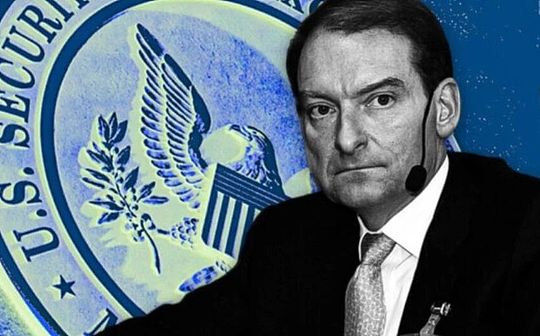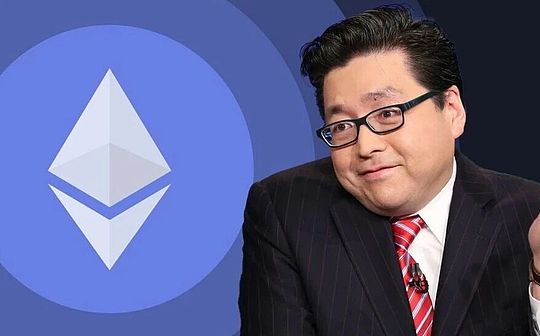
Author: Lawyer Pang Meimei
Today, let’s talk about a topic that will make the entire crypto community excited: The Securities and Exchange Commission (SEC) has changed its previous attitude of rigorous scrutiny of the field of decentralized finance (DeFi) and the American Spirit, and proposed for the first time at the “DeFi and the American Spirit” crypto roundtable held on June 9 that it is studying and formulating an innovation exemption mechanism for DeFi. This trend has quickly triggered strong market response, and multiple DeFi tokens have risen.
As a web3 lawyer, I have seen too many projects die due to regulatory uncertainty. Can this signal really usher in a substantial breakthrough in the DeFi ecosystem?
The SEC Chairman stated:DeFi is in line with core values of the United States
SEC Chairman Paul Atkins clearly pointed out in the meeting that “the basic principles of DeFi are highly consistent with the core values of the United States such as economic freedom and private property rights.”He particularly emphasized supporting the self-custody model of crypto assets and recognized the important role of blockchain technology in achieving financial transactions without intermediaries.The “innovation exemption” policy revealed by Atkins can be said to be a green channel for DeFi, because it means that under this framework, DeFi projects that meet the conditions will be able to enter the market and conduct business attempts faster under the premise of meeting basic regulatory requirements.More importantly, on September 5, the SEC and the Commodity Futures Trading Commission (CFTC) jointly issued a statement calling for regulatory coordination. This action marked the shift of the two major regulators from “doing their own affairs” to “coordinated operations”, which can be said to be a major cryptocurrency change.
What does this mean for the DeFi industry?
As a lawyer, what I care about most is the “compliance boundaries”. The core of these positive signals marks a fundamental change in the US crypto-regulatory logic, and DeFi is no longer the “gray zone” of regulation.
First of all, the benefits of the change in regulatory attitudes for entrepreneurs are obvious.Because the “innovation exemption” policy means that a truly decentralized platform may be exempt from registration as a securities, avoiding cumbersome disclosure and audit requirements, which lowers the entry threshold and can attract more institutional funds to flow into the DeFi ecosystem.For our Chinese project parties or developers, it also means that there will be more space for cross-border cooperation between China and the United States in the future. The loosening of supervision is undoubtedly a catalyst for structural change in DeFi.
Secondly, strengthen investor protection and increase market confidence.From April to June 2025, the SEC Cryptocurrency Working Group held four public roundtables with topics covering crypto trading, custody, asset tokenization and DeFi.These discussions are organized by the SEC’s crypto task force, and these activities are also open to the public. SEC specialist Hester Peirce believes that they are “a spring sprint to clear encryption” and also marks the SEC’s shift from confrontation to cooperation. The “high-quality regulation” emphasized by the SEC is an investment protection for DeFi users and reduces rug risks.Atkins reiterated the “autonomous management of private property” and clearly supported users to directly participate in on-chain financial activities through their personal wallets. This is equivalent to telling everyone that DeFi is not a securities, and that it should have its exclusive ecological niche.We compare finance to an aircraft. In the past few years, DeFi can easily “disorrow” because there is no waterway. Some DeFi successfully take off and enter the waterway with a strong sense of direction, while some DeFi is still hovering in the air and dare not land or continue moving forward.The coordinated supervision between the SEC and the CFTC is more like a waterway drawn for DeFi and an airport built. Although the aircraft may land at different airports, at least it will not fly in the wrong waterway.Of course, the details of the exemption policy have not been implemented yet, and the challenges still exist. Before this, lawyer Pang Meimei still suggested that the project party be cautious.
Furthermore, the stating that the code publisher should not “take the blame” and clarify the developer’s legal responsibilities.Using self-driving car developers as a metaphor, Atkins proposed that “the code publisher should not be held accountable because others use code” and clearly shifted the responsible subject from tool developers to users.Especially those developers who build self-hosting tools or privacy enhancement software should not be held accountable simply for others using their code to engage in illegal activities. SEC member and head of the encryption task force also echoed this view, emphasizing that code release and financial behavior should be treated differently.But she also reminded that centralized entities must not use the “decentralization” label to evade supervision. It is not difficult to see from their speeches that the SEC recognizes the principle of “technological neutrality”.
Finally, the supervision of pledge mining is more clear, alleviating participants’ compliance anxiety.The SEC corporate finance department has previously stated in a guiding opinion: Proof of Work (PoW) mining and Proof of Stake (PoS) pledge does not constitute securities transactions themselves. This clarification has greatly alleviated the compliance anxiety of many blockchain projects with miners and verifier participants. The market response is also obvious. Many pledge projects have risen simultaneously, showing the confidence of institutional funds in the pledge ecosystem.
Behind Policy: The dual driving force between politics and market
This series of movements is not accidental.In recent years, Republican members in the SEC have continued to promote the formulation of more friendly encryption policies, and the “safe harbor” proposal advocated by Hester Peirce and others for many years is also being accepted by more lawmakers.The market responded extremely positively to this, interpreting that the United States may no longer try to suppress DeFi innovation through “law enforcement regulation”, but instead shift to more dialogue and structural inclusive regulation.
If it becomes reality: DeFi in the United States may usher in a new starting point
Once the “innovation exemption” moves from the concept to the implementation, the US DeFi ecosystem may get rid of some of the current comprehensive and large-scale areas, and projects can promote the implementation of technology and business model exploration within a clearer legal framework.This will not only help local projects develop, but may also attract overseas DeFi builders to return to the US market to form a healthier, compliant and competitive decentralized financial picture. The SEC Republican members’ promotion of a more friendly crypto-enforcement policy shows that regulators are trying to truly understand the nature of DeFi and are willing to make corresponding adjustments at the legal level.For the entire industry, this is not only a change in regulatory attitudes, but also a redefinition of innovation, responsibility and freedom.DeFi has grown wildly in 2020, and then to the SEC has now corrected DeFi by adjusting its regulatory framework. This measure allows us to see the confidence to achieve self-consistent integration between DeFi and traditional finance.








